Epigenetic regulation of sex determination in polyploid persimmon
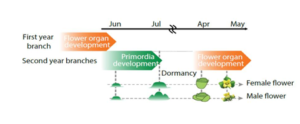 Although most flowering plants produce flowers with male and female parts, there are exceptions which are broadly classified as dioecious (two houses; each individual is male or female, usually associated with the presence of a sex chromosome) and monoecious (one house, separate male and female flowers in a single individual). Diploid persimmon plants are dioecious; the Y-chromosome bears a gene, OGI, encoding a small RNA that suppresses expression of a gene, MeGI, that promotes female flower development. Akagi et al. extend their studies to polyploid persimmon, in which plants are either female or monoecious. They show that the expression of MeGI is additionally regulated through two alternate DNA methylation states, conferring environmental plasticity to sex determination. Plant Cell 10.1105/tpc.16.00532
Although most flowering plants produce flowers with male and female parts, there are exceptions which are broadly classified as dioecious (two houses; each individual is male or female, usually associated with the presence of a sex chromosome) and monoecious (one house, separate male and female flowers in a single individual). Diploid persimmon plants are dioecious; the Y-chromosome bears a gene, OGI, encoding a small RNA that suppresses expression of a gene, MeGI, that promotes female flower development. Akagi et al. extend their studies to polyploid persimmon, in which plants are either female or monoecious. They show that the expression of MeGI is additionally regulated through two alternate DNA methylation states, conferring environmental plasticity to sex determination. Plant Cell 10.1105/tpc.16.00532


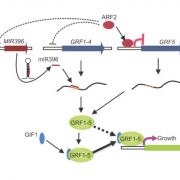

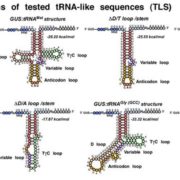
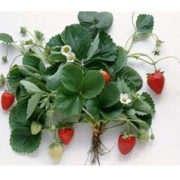

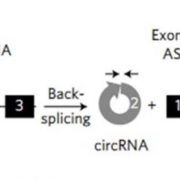


Leave a Reply
Want to join the discussion?Feel free to contribute!